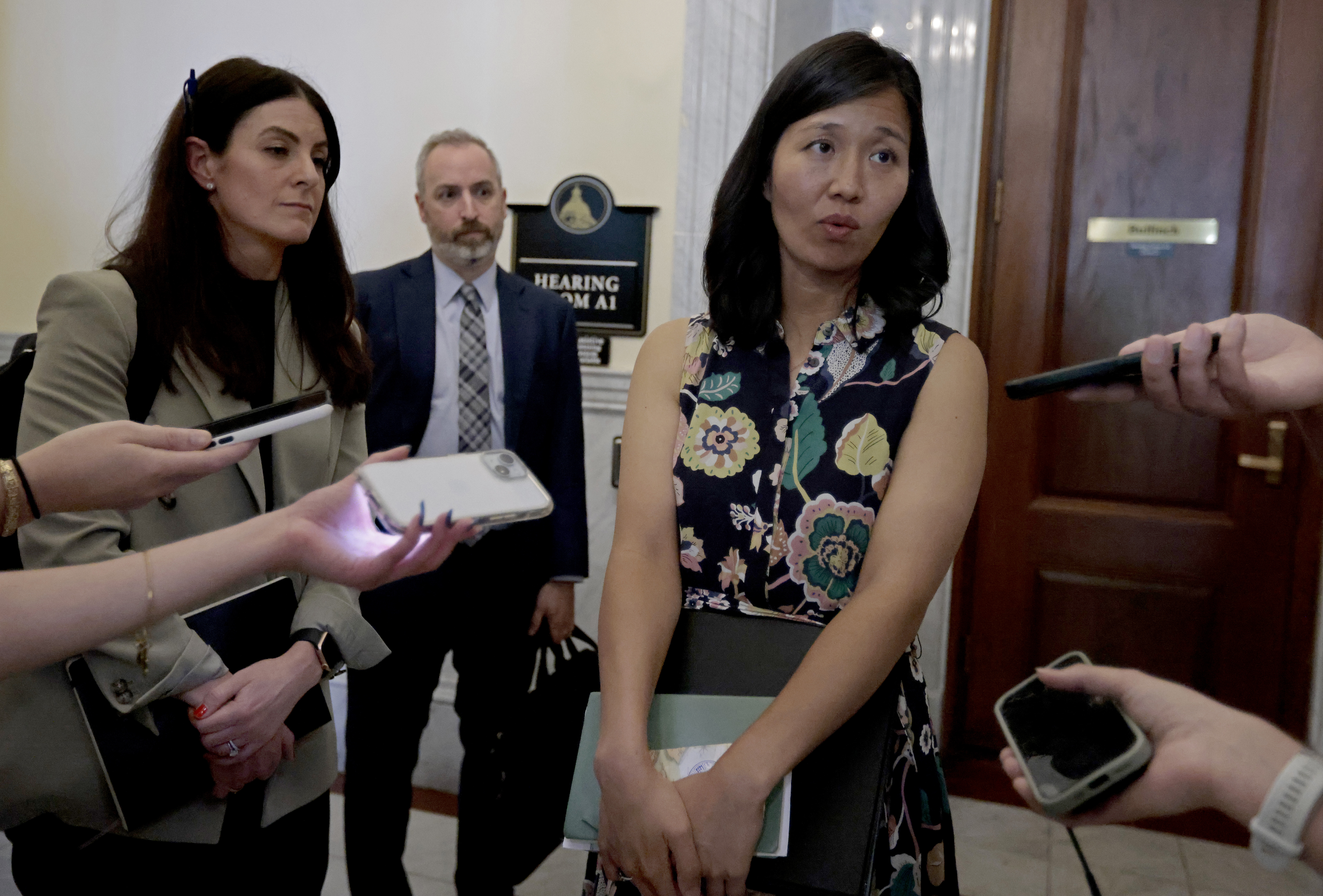
Boston, MA – July 5: Boston Mayor Michelle Wu meets with the media before a Cape Verde Independence Day ceremony at City Hall Plaza. (Photo by John Tlumacki/The Boston Globe via Getty Images)
Boston Mayor Michelle Wu announced Monday that she has refiled her residential tax break legislation, with updated provisions to provide immediate relief to homeowners.
She said the refiled home rule petition will help Boston residents, whose tax bills have increased due to national economic trends that led to the single largest jump in the residential share of the property tax levy since 2007.
Fiscal year 2025 third-quarter property tax bills were sent out on Jan. 1, and Boston residents likely saw sharp increases. Wu's team projected that residential property tax bills in Boston will increase by an average 10.4% in 2025 as the city's budget has grown and Beacon Hill did not agree to the mayor's idea to shift more of the tax burden onto commercial taxpayers, which are seeing a drop in taxes due.
Wu said her legislation includes providions to provide for residential tax rebates if the tax rate is not adjusted and increased exemptions to support small businesses and seniors.
“For too many residents, this sharp tax spike is a burden that makes it even harder to pay bills and afford to stay in the city they call home,” Wu said in a statement. “I urge legislators and all stakeholders that held up the passage of our negotiated compromise to look carefully at the serious impact on Boston residents and join us in delivering the balanced relief our community needs.”
This comes after Wu submitted legislation last year aimed at amending the tax relief home rule petition to give her administration the power to push a greater share of the city's property tax burden onto commercial owners. She said it was the best way to prevent an all-at-once spike from hitting residential owners this year.
The legislation was approved by the Boston City Council and the House, but was never voted on by the Senate after it was blocked by Sen. Nick Collins, of South Boston, during informal session.
Collins used a parliamentary maneuver to prevent any action on the proposal for the third straight session, in the process slamming what he described as a "campaign of fear and manipulation" by its supporters. The move came after property valuation data in December showed lawmakers that residential tax bills would not rise as sharply as originally projected.
Wu's tax relief package will now go to the City Council for approval before heading to the State House for legislative consideration. If the Legislature does approve of it, Gov. Maura Healey would get a final say on the matter.
State House News Service contributed to this report.




